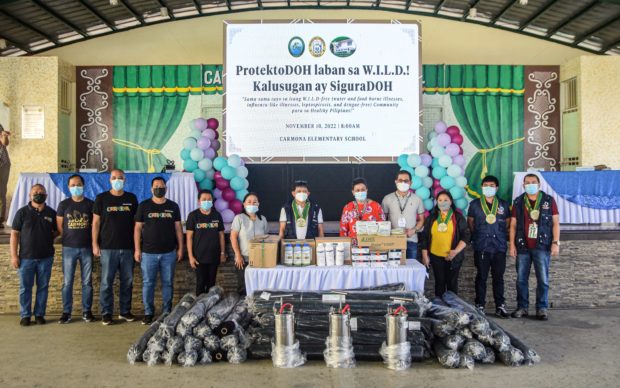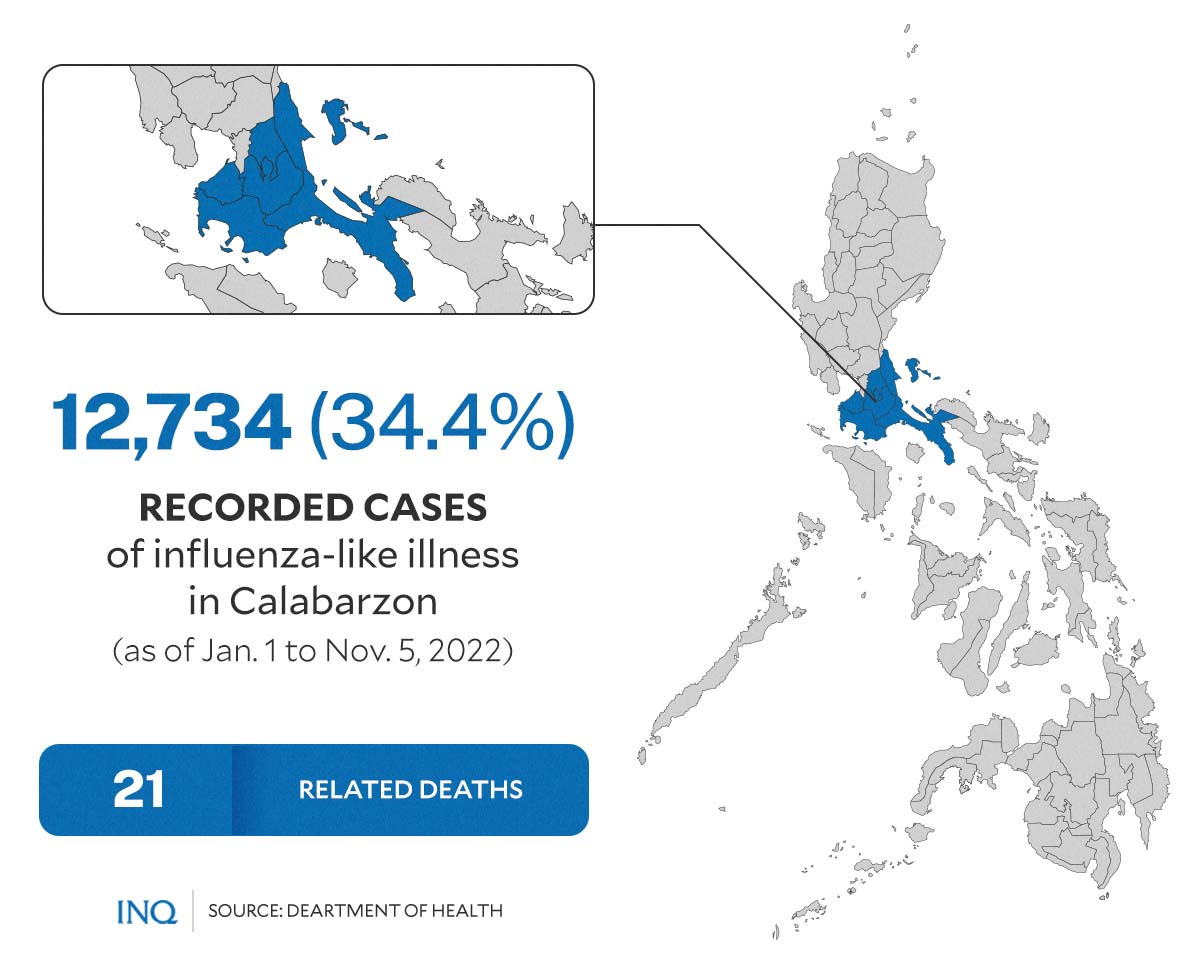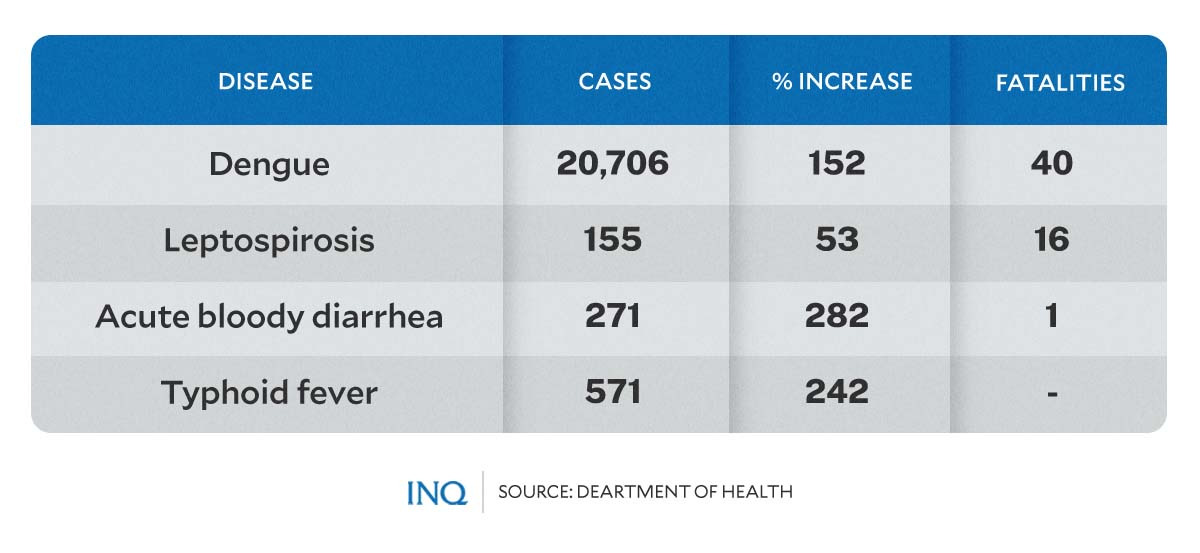DOH boosts drive against ‘WILD’ diseases in Calabarzon

Department of Health officials in Calabarzon and the local government in Carmona town, Cavite, launch on Nov. 10 the intensified campaign against WILD diseases in the region. (Photo from DOH-Calabarzon)
LUCENA CITY — With an alarming increase in WILD diseases in the Calabarzon, the Department of Health (DOH) has stepped up its campaign to prevent an outbreak of water-borne illnesses in the region.
WILD is an acronym coined by the DOH for “water-borne diseases, influenza, leptospirosis, and dengue” that usually come with the rainy season.
“The DOH-Calabarzon has strengthened its campaign against WILD diseases in the region to prevent an outbreak,” the DOH-Calabarzon Health Education and Promotion Unit said in a post Thursday on its Facebook page.
From Jan. 1 to Nov. 5, the DOH-Calabarzon recorded 12,734 influenza-like illness cases (34.4 percent), which reflect an increase compared with last year’s data.
Article continues after this advertisementAt least 21 deaths related to it were also recorded this year.
Article continues after this advertisementDengue cases in the last 10 months reached 20,706 (a 152-percent increase) with 40 fatalities, while leptospirosis cases rose to 155 (a 53-percent increase) with 16 fatalities.
The agency also logged 271 acute bloody diarrhea cases, a 282-percent increase from 71 cases last year, with one death, and 571 typhoid fever cases, a 242-percent increase from the same period last year.
Dr. Ariel Valencia, DOH-Calabarzon director, explained that WILD diseases “are always a threat, year in and year out.”
“Kasi ang lepto [leptospirosis], as it is, endemic iyan eh. Ang binabantayan natin ay iyong magiging epekto niyan sa tao mismo. Once na magkaroon ng lepto [leptospirosis], maka-recover ba siya o maging fatality? Kaya critical ang early detection and early diagnosis,” Valencia said in the DOH-Calabarzon report.
(Leptospirosis, as it is, is endemic. What we are watching for is its effect on people. Once a person contracts lepto, can he/she recover or become a fatality. So early detection and diagnosis are critical.)
After the recent series of typhoons that hit the country, the DOH-Calabarzon, through the “KonsulTayo Campaign,” encourages the public to seek medical attention and be aware of WILD diseases.
Combating WILD
To combat WILD diseases, the DOH-Calabarzon has strengthened its partnership with the local governments across the region.
The renewed campaign started in Carmona, Cavite, on Thursday.
The DOH said it provided local health workers with anti-WILD diseases equipment and other medical supplies, including spray cans of insecticide, larvicides, insecticide-treated screens, dengue NS1 rapid diagnostic tests, antigen and antibody tests, oral rehydration salt, and paracetamol.
The recent typhoons have caused flooding in several parts of the country.
Leptospirosis is usually contracted by wading in the flood contaminated with animal urine, particularly from rats.
The rainy season also increases the number of Aedes aegypti, the dengue virus mosquito vector.
Also highly contagious, influenza, or the common flu, is a year-round disease, but it usually peaks during the rainy season.
Children, the elderly, pregnant women, and those with weakened immune systems are more likely to develop serious complications if infected.
RELATED STORIES
Beware of flood-borne diseases
DOH declares ‘code white alert’ in Calabarzon due to Tropical Depression Maymay

